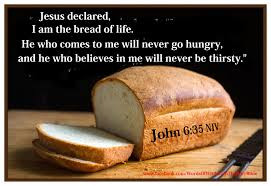
In this week’s instalment, I want to deal with the subject of food — what is it that the Christian must eat and what should not be part of their diet?
BY PHILLIP CHIDAVAENZI
I am aware that there are Christians — particularly from some apostolic sects and Seventh Day Adventists — who deliberately refrain from particular foods such as pork as part of their devotion or restrictions of their faith. It is important, however to unpack what the scriptures say about this so that when we do it, we are clear whether it is really scriptural or it is just a matter of personal choice and taste.
Leviticus chapter 11 gives a detailed and comprehensive discourse of this subject in the Old Testament while in several portions of the New Testament, Paul also deals with it. The dietary restrictions given to the Israelites in the Old Testament included refraining from animals that do not chew the cud, camels, pigs, fish without fins or scales, eagles, etc. The dietary laws given to the nation of Israel also included prohibitions against eating pork, shrimp, shellfish and many types of seafood, most insects, scavenger birds and various other animals.
What I want to emphasize is that these dietary rules were never meant for any other people apart from the Israelites. They were not for the church, which is a creature born out of the New Testament. The purpose of the food laws was to make the Israelites distinct from all other nations.
You will, however, discover that the transition to the New Testament brought with it a new dispensation during which Jesus Christ declared all foods clean. In Mark 7:15, 18-20 (KJV), Jesus said: “There is nothing from without a man, that entering into him can defile him: but the things which come out of him, those are they that defile the man… And he saith unto them, Are ye so without understanding also? Do ye not perceive, that whatsoever thing from without entereth into the man, [it] cannot defile him; Because it entereth not into his heart, but into the belly, and goeth out into the draught, purging all meats? And he said, That which cometh out of the man, that defileth the man.”
Remember that Jesus and the disciples functioned in the Old Testament because Jesus, the testator of the New Testament, had not yet died. But even then, he had already pointed to the forthcoming new dispensation in which all foods were declared clean.
Perhaps the most dramatic incident in which God settled this question is found in Acts 10. Here, God gave the apostle Peter, a Jew to the core, a vision in which he declared that formerly “unclean” foods could now be consumed and should not be considered impure anymore.
- Chamisa under fire over US$120K donation
- Mavhunga puts DeMbare into Chibuku quarterfinals
- Pension funds bet on Cabora Bassa oilfields
- Councils defy govt fire tender directive
Keep Reading
Acts 10:14-15 (KJV), “But Peter said, Not so, Lord; for I have never eaten anything that is common or unclean. And the voice [spake] unto him again the second time, *What God hath cleansed, [that] call not thou common”.
Remember that when Jesus died on the cross, He fulfilled the law, including all the ordinances regarding clean and unclean foods. As a Christian in this age or dispensation of grace, you have the freedom to eat whatever you want. The question about clean food has always been topical, even in the early church where the Jews wanted the Gentiles incorporated into the faith to observe their ordinances, including refraining from eating certain foods as provided for under the Old Testament law.
Paul, however, had to stress to them that all such laws were now irrelevant under the new covenant of grace. Colossians 2:20-22 (KJV): “Wherefore if ye be dead with Christ from the rudiments of the world, why, as though living in the world, are ye subject to ordinances, (Touch not; taste not; handle not;* Which all are to perish with the using;) after the commandments and doctrines of men?”
Forbidding people from eating certain foods is of man-made doctrines. Paul stressed to the Roman church that there were more important things than food in the kingdom of God. Romans 14:17 (KJV), “For the kingdom of God is not meat and drink; but righteousness, and peace, and joy in the Holy Ghost.”
Feedback: [email protected]











